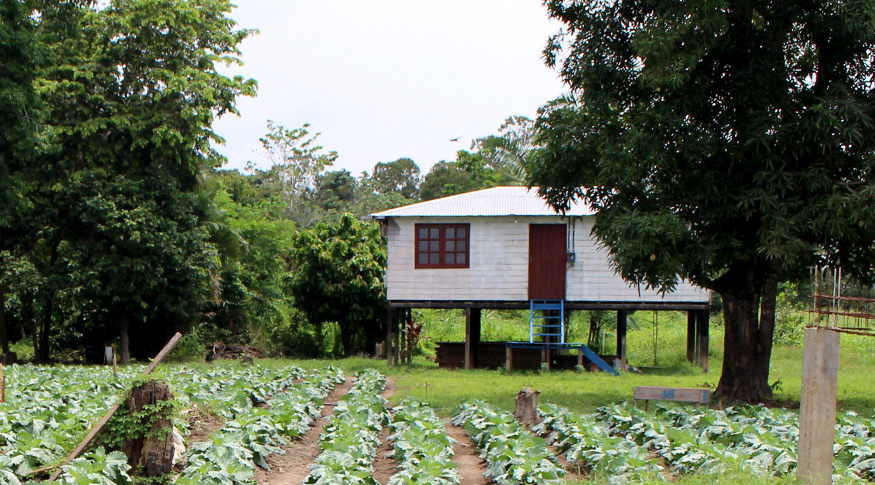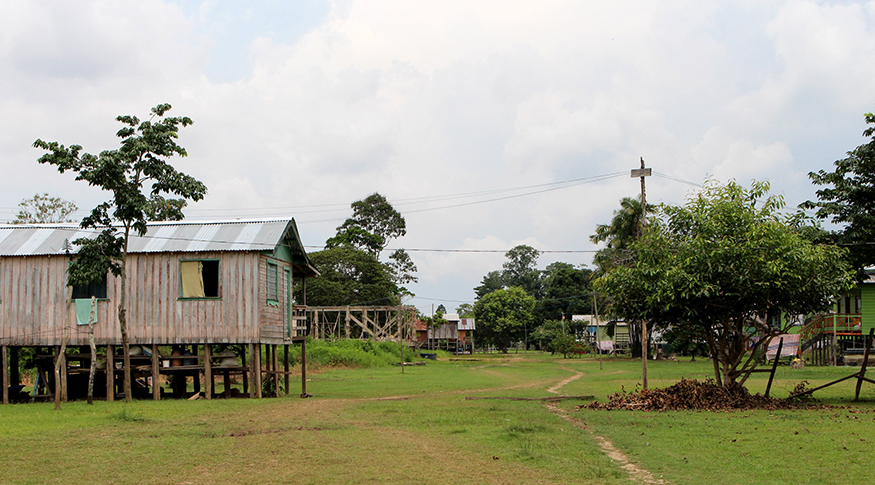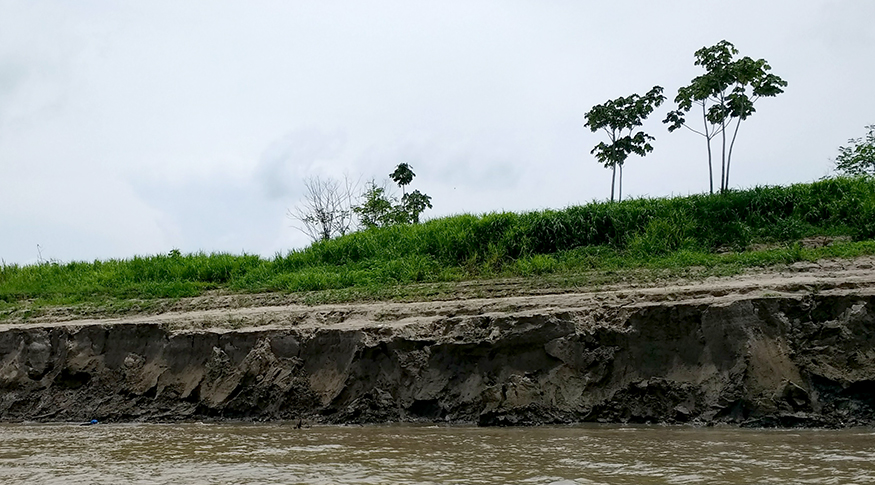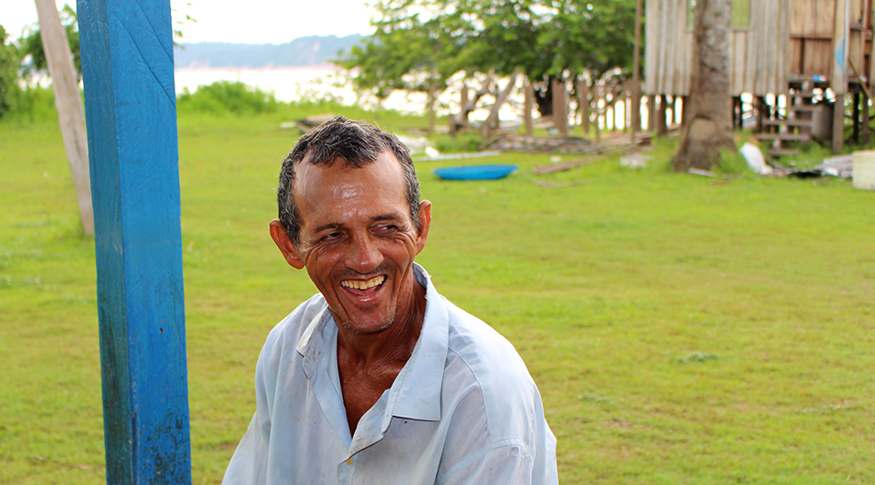Censo Agropecuário
Water sets the pace of agriculture in Amazonas
January 10, 2020 02h00 PM | Last Updated: January 13, 2020 04h54 PM

In a village full of farmers located in the Terra Nova district, municipality of Careiro da Várzea (AM), people live willing to face difficulties to crop and harvest. They live in a very fertile region, though little stable, due to the natural erosion of rivers. Despite the adversity of living together with the risk of landslides and in the middle of annual inundations coming with the floods, some residents in Várzea do not change their lives for anything.
"Here it is a meadow and it floods. Whenever the plant is at its best and we are beginning to raise some money, water comes and takes it all. But all our family lives here and we are not willing to leave", states 62-year old Francisca da Silva.
Careiro da Várzea is surrounded by water from all sides. The access is very hard to reach where the Silva´s family lives and rudimentary wood bridges should be used. Manaus stays around 22 km far by water, a trip of 20 to 30 minutes by motorboat, a small vessel. Along the way you face one of the most famous tourist attractions in Amazonas: the confluence of the Negro and Solimões rivers.

Water challenges
Rivers are not only a delight for the eyes. They determine the production cycle and living conditions of the population. Houses should be built at such a height that they are not reached by floods; life is unpredictable in the riverbanks, because they collapse and cause landslides.
In a municipality where people live on the agriculture or fishing, the uplifted gardens are a strategy for not losing the crops whenever the river rises. Many families build uplifted wood structures to plant, but those that do not count on financial resources to mount them, they take advantage of the trees. "We have to build seedbeds like this, climbing trees, to plant chicory, onion, etc.", tells Silva. "We live on this, so we need to plant and have something to sell when flood comes".
Edson Rezende, 47 years, is from Maranhão and lives in Amazonas since when he was 19. He became a fisher when he was 30, taking a modest life with his wife. He sells his fishes in the street market, "with sure buyers", and takes advantage of the months of October and November when the harvest is bigger. He is one of the residents in Terra Nova who needs to disassemble his wood house and rebuild it somewhere else, farther from the river, free from landslides.
His children live and study in Manaus. "They wish that I go there [Manaus]. When they see the landslides, they ask me why I do not leave and I answer: to do what there? I am building this house on my behalf, because my wife prefers to leave. But I like here, it is calm".

Family farming prevails
In many points, the life style of the producers in Careiro da Várzea reflects the results of the 2017 Census of Agriculture, released by the IBGE: most of the employed persons are a relative of the producer, they work in family farming and the head of the establishments is predominantly a man (between 79 and 81%). The shared management between couples occurs in 20% of the establishments in Brazil, though it reaches 26% in Careiro and in the state of Amazonas.
Silva tells that agriculture is an occupation passed from generation to generation among the women in her family. As they are retired, she and her husband crop lettuce, green smell, chicory, watermelon and other food to complement the family income. "I plant since I was a child, because I was born and raised here, and learned with my mother. My daughter has been learning with me, though she is married and she plants for her own family", states her.
Aristides Mendes, 71 years, also shares the work with his wife. He tells that he works in agriculture since he was 12 years old, when he learned to plant with his father. He still plants and harvests today, whereas his children live in Manaus, where they are farmers as well. For him, agriculture and livestock today are better than in the past, due to the mechanization of the work: "today it is much better because we have the machines to revolve the soil".
In the family of Adamor Carvalho, 59 years, only one out of his three daughters is a farmer. "They married, went to school and didn´t want to plant, except one of them who is my neighbor and plants with her husband". On the other hand, his son follows the father. "He learned to plant since he was a child and went to the farm with me. He looked and learned. Today he helps me here, it is me and him", tells Carvalho.
Aging in the country
The children who do not replace their parents in the establishments – either because they leave Careiro da Várzea to study or look for a job or because they take on their own agricultural establishments – contribute to the so-called aging in the country. Family farming is the one that mostly feels the weight of the change in the age profile of the producer.
In the case of Rezende, he naturally sees the move of his children to the capital, because they can have what he didn´t have: education. "They went to college in Manaus, I built a house for them, they work there. Education is what I wish to give them. I always tell my children that I want they working for themselves, that I and my wife manage things here", says the fisher.

Edson Rezende: fishing is sustenance, but also source of satisfaction - Photo: Adjalma Jaques
The comparison between the 2006 and 2017 Censuses of Agriculture shows that the participation of the producer groups between 25 and 35 years decreased (from 14% to 10%) and that of the producers aged 55 years and over increased (from 40% to 46.7%). In Amazonas, aging is still more evident: 54% of the producers have more than 45 years and only 4.9% of the farmers have less than 25 years.
About to complete 60 years, Carvalho says that it is not so easy to face the hard work of farming, though you can still work if you eat well. "We are old, aren´t we? Boys can work nonstop, skipping lunch, running all around. We do not".
Aged 71, Mendes does not want to quit as well. "I have courage to work much more, and goodwill. I don´t need to work hard, I have a store as well, but I like to plant, it is good and it made us grow", highlights him. Thinking of the future, Rezende cannot anticipate an age to quit. For him, the passion for fishing is what makes him go ahead: "I am in love with fishing. More than sustenance, I fish for fun and I will fish while I am willing to to it".





















